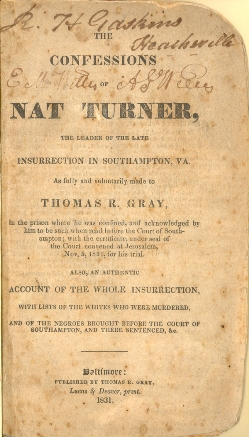
On August 21, 1831, an enslaved man named Nat Turner led a rebellion against white enslavers in Southampton County, Va., about 20 miles from the border with North Carolina. Within a day, more than 50 people had been killed. The ranks of the rebels swelled to about 60 enslaved people. The governor called out the militia to end the rebellion but word of the attacks began to spread across the South.
In North Carolina’s northern border counties, panic ensued among the residents. The militia was called out to Hertford, Halifax and Northampton Counties. Whites in other counties began to arm themselves as well. As rumors and speculation spread that there would be more violence and attacks, many slave owners began to fear that their own enslaved people were going to rise up against them. As a result, whites began to monitor the behavior of enslaved people more closely and in some cases, they were arrested and executed. The legislature also passed laws further restricting the rights of the enslaved and free Black people.
After several weeks on the run, Nat Turner was caught and tried in Virginia, where he was found guilty and sentenced to be hanged. He was hanged later that fall.
Other related resources:
- An overview of slave rebellions on NCpedia
- Resources related to black history from the State Library
For more about North Carolina’s history, arts and culture, visit Cultural Resources online. To receive these updates automatically each day, make sure you subscribe by email using the box on the right, and follow us on Facebook, Twitter and Pinterest.
